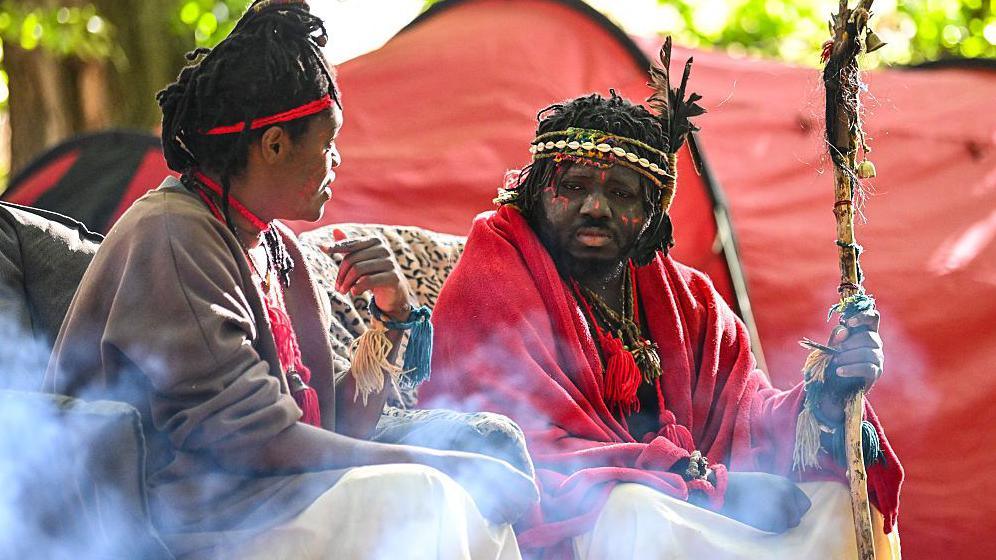Council begins fresh court move to evict 'African tribe' from new site
The self-styled "African tribe" have made their home in the Borders
- Published
Scottish Borders Council has begun new court proceedings to have a self-styled "African tribe" evicted from its land.
The three members of the self-proclaimed Kingdom of Kubala group were officially evicted from their makeshift encampment in private woodland near Jeburgh by five sheriff officers on Tuesday morning.
However, they set up a new camp, just a few metres away on the other side of a wire fence.
Scottish Borders Council has now established that the land they have moved on to belongs to the council and confirmed it had submitted paperwork to the court to begin fresh eviction proceedings.
The "tribe" have been living in the wood for several weeks despite formal attempts to remove them from the land.
They were woken by the sheriff officers at 08:00.
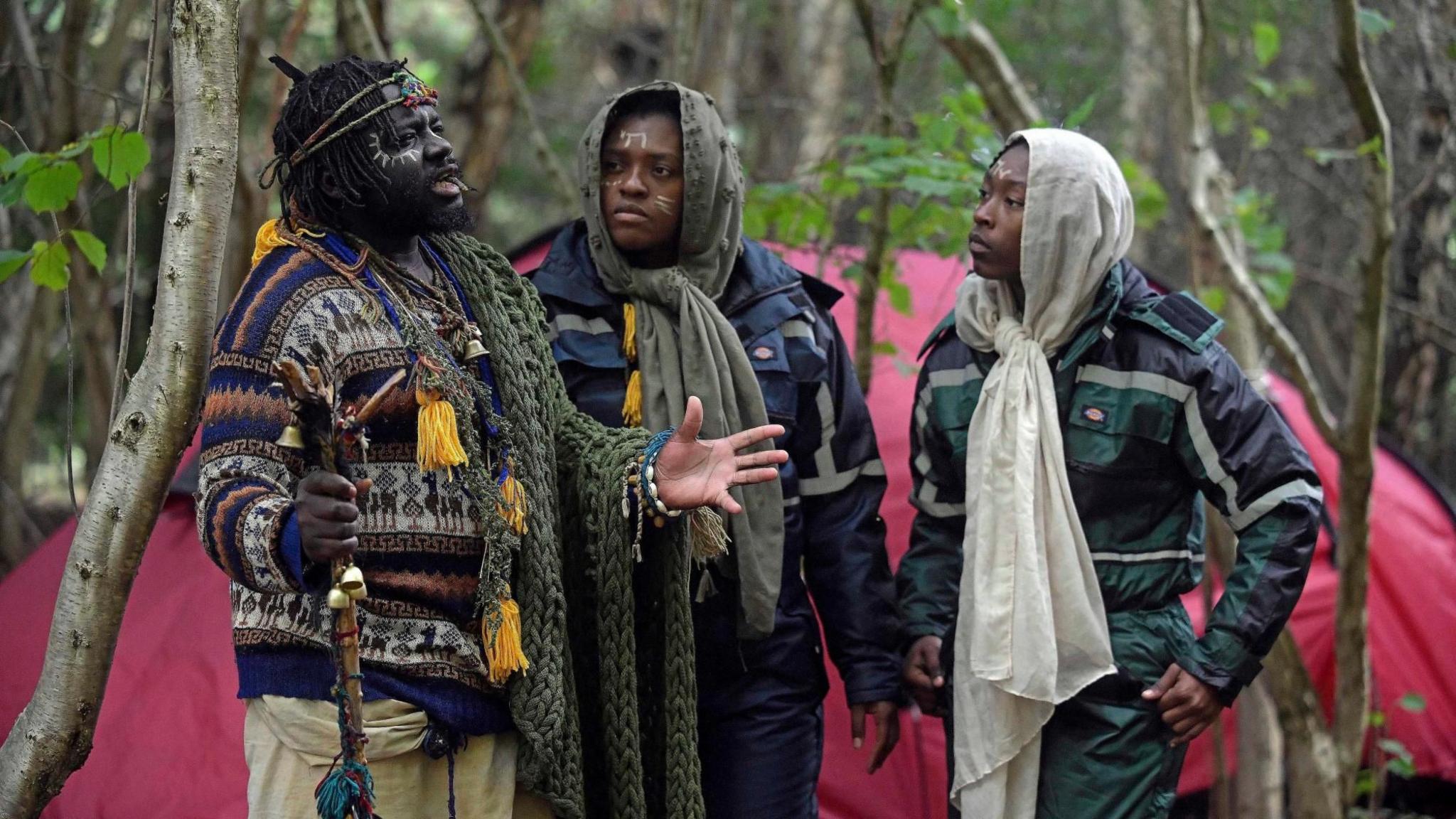
The three members of the group remained in the woodland but moved a few metres from their previous encampment
Earlier, Scott Hamilton, deputy leader of Scottish Borders Council, said it was trying to establish the ownership of the land the group had moved on to.
It was later confirmed as belonging to the council.
The eviction order was issued by Sheriff Peter Paterson last week after the group ignored a previous instruction to leave their encampment.
They said they were reclaiming land that was stolen from their ancestors 400 years ago - but the local council said they were breaking the law.
The group have a growing online presence, with more than 100,000 followers on TikTok and Facebook, and have received worldwide media attention.
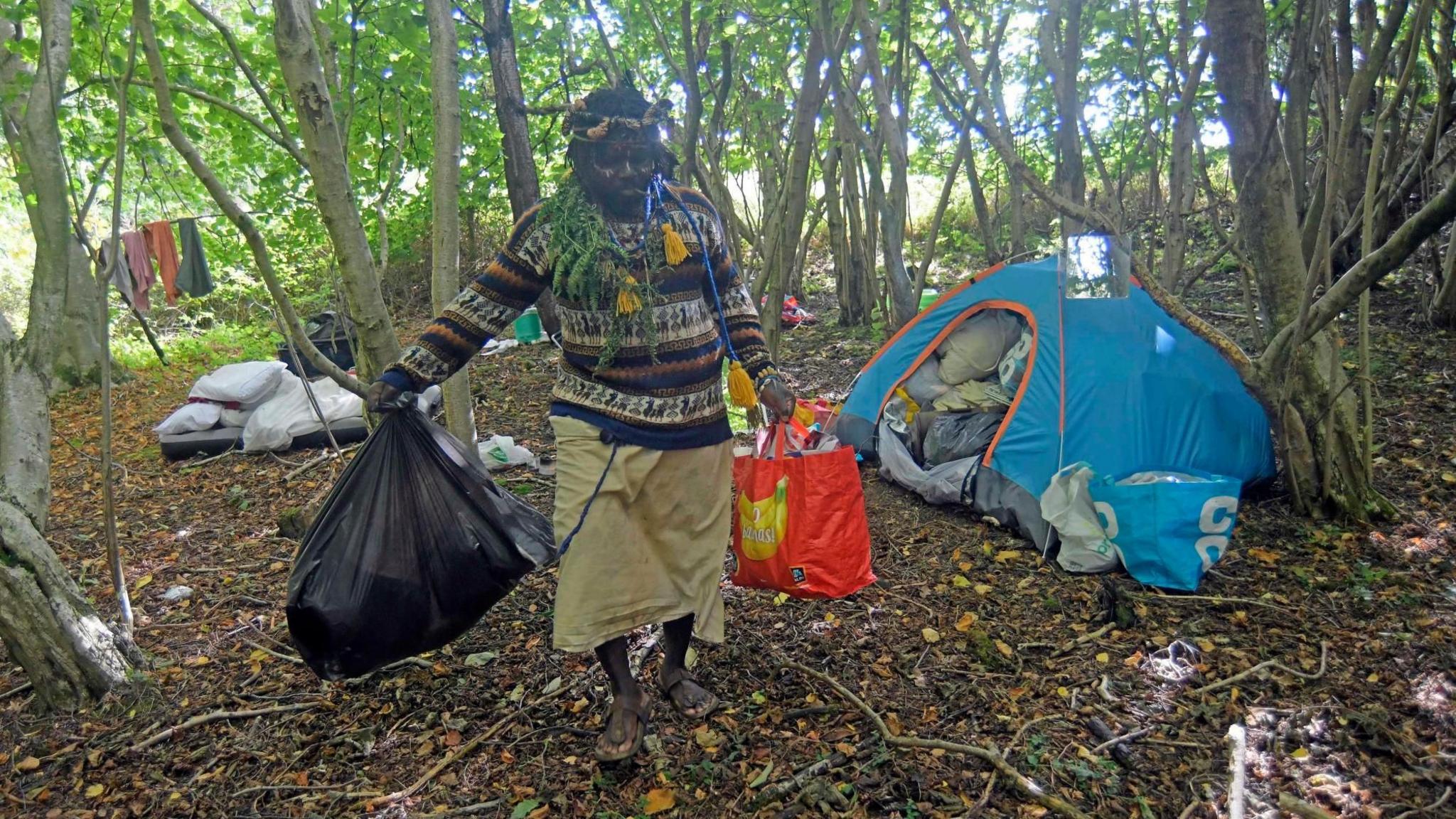
Kofi Offeh, who calls himself King Atehehe, is from Ghana
Ghanaian Kofi Offeh, 36, and Jean Gasho, 42, who is originally from Zimbabwe, first arrived in the Jedburgh area in the spring.
Describing themselves as King Atehehe and Queen Nandi, they set up camp on a hillside above the town in the Scottish Borders.
They were joined by "handmaiden" Kaura Taylor, from Texas, who calls herself Asnat.
The eviction was carried out by sheriff officers, who were supported by four police officers, on Tuesday morning.
Shouting could be heard from the woods as they woke them.
The officials remained on site for about 90 minutes, by which time the tribe's tents had been dismantled and their possessions packed up.
The group then set up the new camp just metres away, over a fence.
When asked about the eviction by BBC Scotland Kofi Offeh said he had "commanded" the sheriff officers to move their belongings.
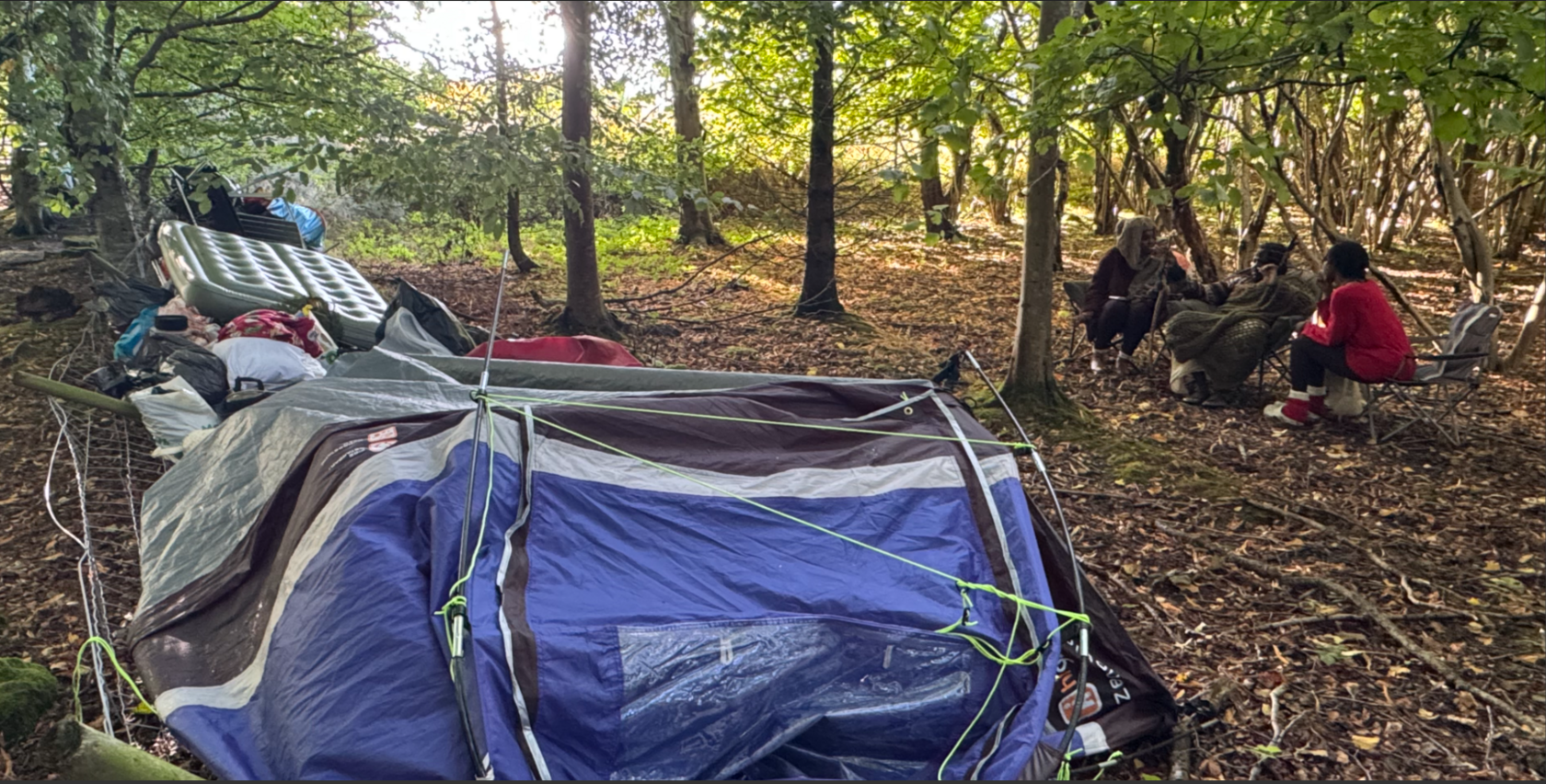
The group previously camped on the left of the wire fence and have now moved a few metres to the right
The group claimed ancestral rights to land and insisted that the Kingdom of Kubala had been born.
Scottish Borders Council initially evicted the trio from the hillside site above Jedburgh in July.
But rather than leave the area, they moved about a mile further out of town to a woodland next to an industrial estate.
Mr Offeh previously said he was "not afraid" of the warrant for their eviction.
The land's owners, David and Mary Palmer, successfully applied to the courts for the tribe to be evicted.
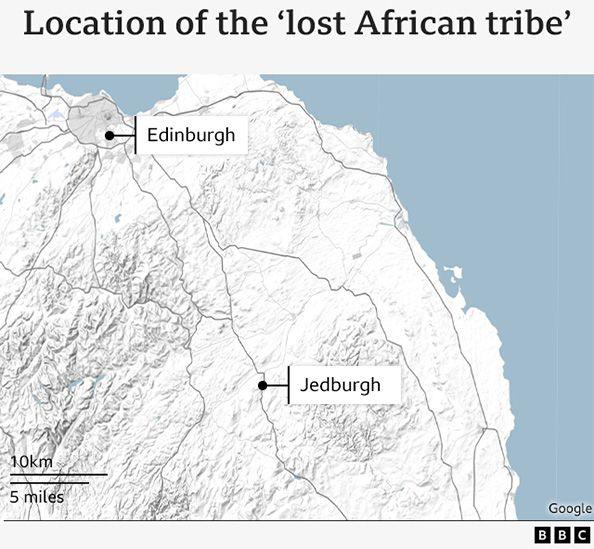
The camp is located near Jedburgh in the south of Scotland
However, Scottish Borders Council said they had failed to comply with an order to leave the land by 17:00 on Monday.
Mr Hamilton said last week that the group were breaking the law by taking up residence on someone else's land.
He said the landowner had been left with "no option" but to seek an order from the sheriff.
He added that it was disappointing - but not surprising - that the group had ignored the ultimatum to leave the site.
"They have rebuffed every opportunity to engage with us," he said.
"We can help them, but we won't sit back and let them break the law."
Related topics
- Published12 September
